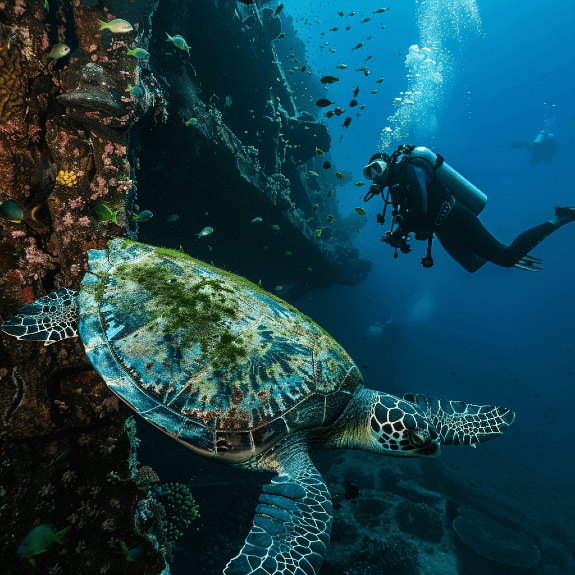When Should I Go Diving In Mozambique?

Finding the perfect moment to dive into the crystal-clear, azure waters of Mozambique is a thrilling prospect. The country’s waters, teeming with marine life and majestic coral reefs, offer some spectacular sights for snorkelers and scuba divers. If you’re wondering about the best time to experience underwater adventures in Mozambique, this article will guide you through the important considerations to help you plan your trip perfectly.
The time of year you opt to dive in Mozambique can intensely influence your experience. Whether you’re an expert diver or a beginner, understanding how seasons impact visibility, water temperature, and marine life sightings is crucial. Let’s take a dip into the details.
The Ideal Time for Underwater Visibility
For the clearest waters and optimal underwater visibility, it’s recommended to plan your diving journey between August to November in Mozambique. During these months, the water temperature is generally warm, which aids in creating nearly unclouded conditions and the visibility can increase up to 30 meters. This period is ideal for witnessing the impressive underwater topography and the rich, vibrant marine ecosystem.
Moreover, the calm sea conditions during this period are suitable for beginners. You get the opportunity of witnessing humpback whales as they migrate through Mozambique’s waters. However, remember that nature is unpredictable, and the abundance of marine sightings can fluctuate.
Lastly, the tourist crowd is relatively less during this period. Therefore, it’s not only suitable for a more intimate diving experience but also offers a great chance for safe and relaxed diving without bumping into lots of other divers.
The Peak Time for Marine Life
For those specifically interested in the prolific marine lives, the period from June to October offers the most rewarding underwater scenes. Mozambique’s marine biodiversity is globally renowned, and during these months, divers can frequently witness the amazing spectacle of humpback whales and several species of sharks, including the awe-inspiring whale sharks, the largest fish in the world.
Additionally, during these months, you can also encounter manta rays, groupers, and an array of colorful fishes. This time slot aligns with Mozambique’s “winter”, so the water temperature might be a bit lower than other months, requiring a thicker wetsuit.
Despite being the peak season, the diving spots are well-managed ensuring that everyone gets a chance to treasure the remarkable underwater life, without feeling overcrowded.
The Offseason Diving Opportunities
If your visit to Mozambique doesn’t align with the average diving season, fret not. The country’s rich marine biodiversity ensures that even in the offseason, the underwater world remains lively. From December to April, Mozambique experiences its rainy season, but this doesn’t mean diving is off-limits.
During this time, the water might be a bit turbid due to rainfall, but it’s also the best time to spot diverse species of nudibranchs and macro marine life. Additionally, the offseason corresponds with fewer tourists, granting the additional advantage of peaceful adventures under the sea.
However, during the rainy season, it’s crucial to enquire about the sea conditions before diving as nature can be unpredictably changing.
In Conclusion
Diving in Mozambique can be a sublime experience year-round, but the period from June to November offers enhanced underwater visibility and an abundant marine life display. No matter when you choose to visit, the country’s rich underwater realms will surely leave you mesmerized.
For an elevated diving experience in Mozambique, consider enhancing your stay by booking accommodation that aligns with the charm of your underwater adventure. Revel in the intimate and tranquil retreat, experiencing the tropical allure that you’ve yearned for during your diving journey in Mozambique. Immerse in the world-class comfort after a day under the sea. So, why wait? Begin crafting your underwater adventure today. Dive into Mozambique, it’s calling!
